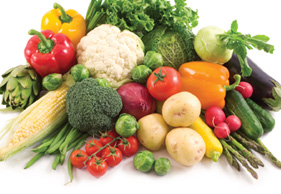For many of us, the long-awaited Comrades Marathon will soon be over. Months of hard training have taken their toll on our bodies, both mentally and physically, and many of us are looking forward to the off season. However, now is the time for vital recovery, but many of us stop exercising, or we don’t follow a specific eating plan, which leads to unwanted weight gain. Putting a nutrition plan in place to aid in optimal recovery and help with weight management, could make the winter months that much easier to get through. – BY CHRISTINE PETERS
BALANCE THE SCALES
Not sure how to eat to ensure maximum recovery and minimal weight gain? Use the following as your guide.
• Carbohydrate – Despite a reduction in training during the off season, your calorie intake should still consist primarily of carbohydrates, as these are an immediate and primary source of fuel for the muscles and brain. Between 50-60% of your total calorie intake should consist of carbohydrates. Choose wholegrain breads, high-fibre cereals, wholewheat pasta, brown and wild rice, baked potatoes, fruits and starchy vegetables, dried beans and lentils.
• Increase your vegetable intake – Replace some of the starch you used to eat with lower carb vegetables such as broccoli, cauliflower, peppers, marrow, spinach, salads, squash, etc. Vegetables contain more fibre, which helps you feel full.
• Protein – Most people eat more than three to five times the amount of protein they need. On top of that, some protein food sources are high in fat. Protein should comprise 10-20% of your total calorie intake. Cut visible fat from meats and choose lean proteins such as skinless poultry, non-fried fish, skim milk and eggs.
• Fat – Fat contains more than twice the calories per gram that carbohydrates and proteins do. Less than 25% of your daily calorie intake should come from fat. Choose small amounts of cooking oils, spreads and salad dressings, and mostly unsaturated fats like extra virgin olive oil, avocado, olives, seeds, etc. Essential Omega-3 fats are found in oily fish like salmon, fresh tuna, mackerel, herring, pilchards and sardines and should be eaten at least two to three times a week.
TIME TO EAT?
To maximise your metabolic rate, ensure that your meals are no more than five hours apart. Eating three meals with one or two snacks daily will keep your metabolic engine cranking. Try some of these easy meal suggestions:
• Swap sandwiches for soups, which are nutritious, filling and often low in calories.
• Use beans and lentils instead of meat in stews, soups and casseroles.
• Drink herbal teas to increase your water intake.
• Make a little extra when preparing meals and store it as a healthy ‘grab and go’ option.
• Take the time to keep a detailed food and exercise diary every now and again, so that you can monitor patterns of your current eating behaviour.
• Don’t forget to drink; aim for about 30-35ml per kg body weight per day.
Also, choose an age and/or gender-specific standard multivitamin (i.e. no more than 200% of the daily value for each individual nutrient).
KEEP ACTIVE
As little as 30-60min of daily activity will help keep your weight in check. For longer duration exercise (60min and more), low to moderate intensity (50-60% VO2 Max) is recommended to burn fat, however higher intensity exercise (65-70% VO2 Max) is more effective for weight loss.
POST COMRADES RECOVERY NUTRITION TIPS
With Comrades being the ultimate goal for most runners, we don’t need to refuel and replenish to the same degree as if we were running the very next day. Nevertheless our nutrition is still important when it comes to optimal recovery after such a huge event.
Recovery nutrition focuses on three areas:
• Restoration/refuelling of muscle and liver glycogen stores.
• Replacement of fluid and electrolytes lost in sweat.
• Regeneration, repair and adaptation processes following catabolic stress and damage caused by exercise.
Up to five hours after an endurance event, the muscles and liver have an increased ability to manufacture and store glycogen. Intermediate to high GI carbs are most effective as they release glucose into the bloodstream at a faster pace than low GI carbs. Also consuming a small amount of protein helps to repair damaged muscles.
Rehydration is an immediate priority as fluid deficits can have an effect on recovery and an increased risk of stomach upsets, potentially limiting athletes’ ability to ingest nutrients. Weigh yourself before and after your race and see how much weight you have lost. The amount you have lost plus 500ml is generally what you need to consume after the race. Lighter and slower athletes have a higher risk of over hydrating, which can be very dangerous in terms of low sodium levels in the blood, and can lead to death.
PRACTICAL TIPS
• Aim for 1g carbohydrates per kg body weight (50-100g with 10-25g high-quality protein) within the first hour after the race, e.g. 250-350ml liquid meal replacement, 250-350ml fruit smoothie, most sports bars (check label), 500ml low fat milk, sandwich with meat filling and a large fruit, 800-1 000ml sports drink with PeptoPro (protein peptide supplement) added.
• Repeat this after an hour or until normal meal patterns have been established.
• Avoid alcohol immediately after the event as it interferes with recovery.


